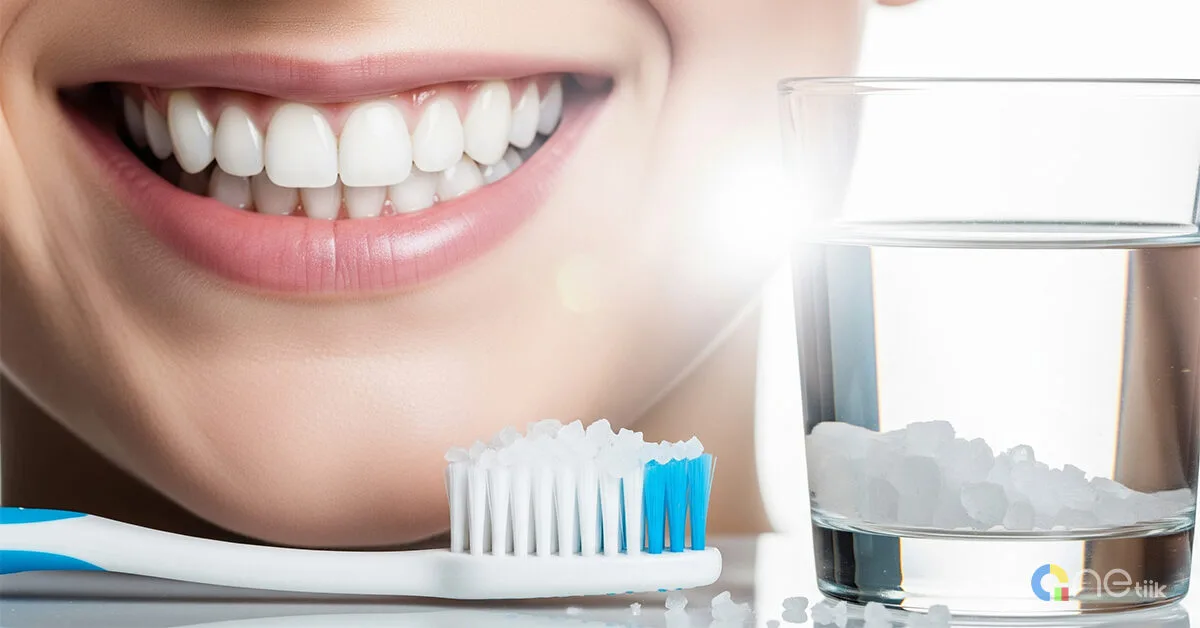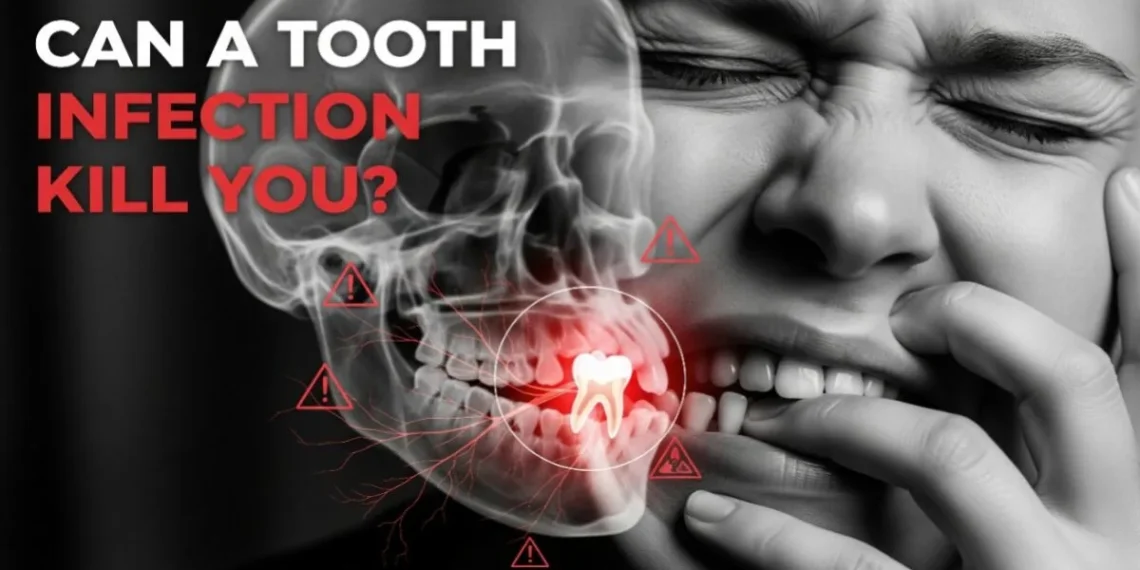A Time-Tested Remedy with Modern Relevance
Salt has been a household remedy for centuries, used not only in cooking but also in medicine and oral care. Ancient civilizations relied on it as an antiseptic and cleanser long before modern toothpaste and mouthwash existed. Today, many still swear by salt for keeping their teeth clean and gums healthy.
But the question remains: How Salt Keep Dental Problems Away, or is it just a myth passed down through generations? In this article, we’ll dive deep into the science, history, cultural practices, expert opinions, and safe ways to use salt for oral hygiene.
The Science Behind Salt and Oral Health
Salt (sodium chloride) has unique antibacterial and anti-inflammatory properties that make it effective for oral health.
1. Antibacterial Action
When dissolved in water, salt creates a hypertonic solution. This draws moisture out of bacteria, dehydrating and killing them. Fewer bacteria mean lower risk of cavities, plaque buildup, and bad breath.
2. Anti-Inflammatory Effect
Salt water rinses reduce swelling in gums by pulling excess fluid from inflamed tissues. That’s why dentists often recommend salt rinses for gingivitis and post-surgery recovery.
3. PH Balance
A slightly alkaline oral environment prevents acid-producing bacteria from thriving. Salt water rinses help neutralize acids, protecting enamel.
How Salt Keeps Dental Problems Away
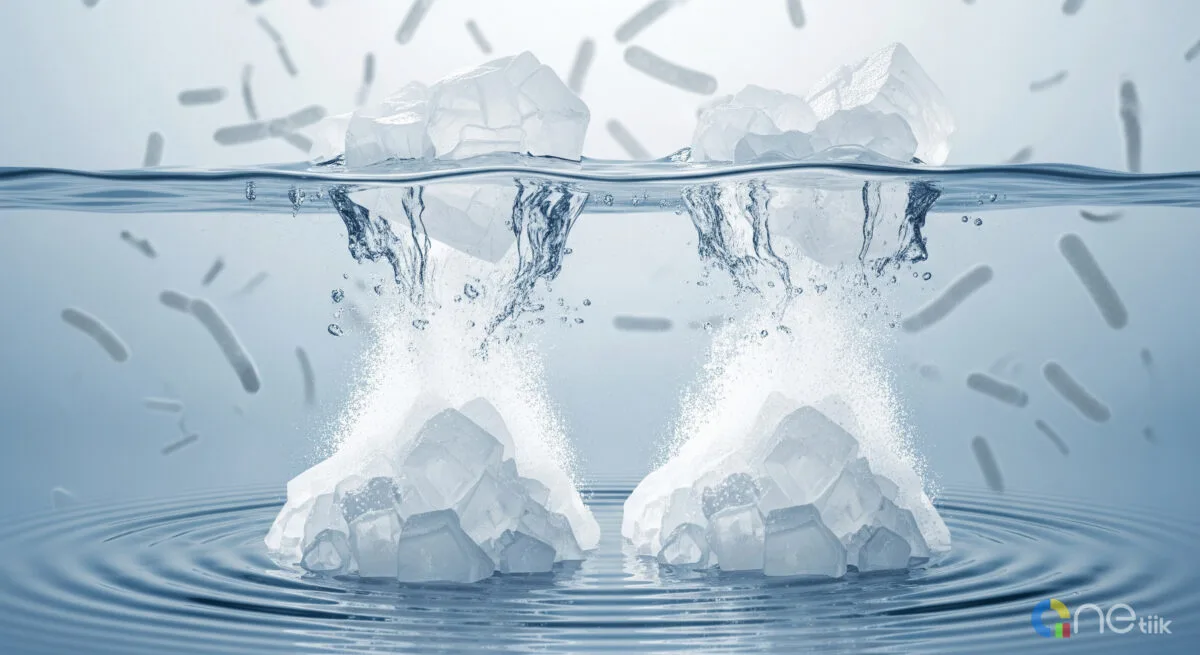
Salt’s effectiveness extends to multiple aspects of oral health:
- Cavity Prevention – By reducing bacterial growth, salt lowers the chances of tooth decay.
- Gum Disease Protection – Saltwater rinses soothe inflamed gums, easing gingivitis symptoms.
- Wound Healing – After tooth extraction or oral surgery, salt rinses keep wounds clean and accelerate healing.
- Fresh Breath – Eliminates odor-causing bacteria and leaves the mouth feeling refreshed.
- Surface Whitening – Salt’s abrasiveness can help remove surface stains, giving teeth a brighter look.
Brushing with Salt vs. Salt Water Rinse
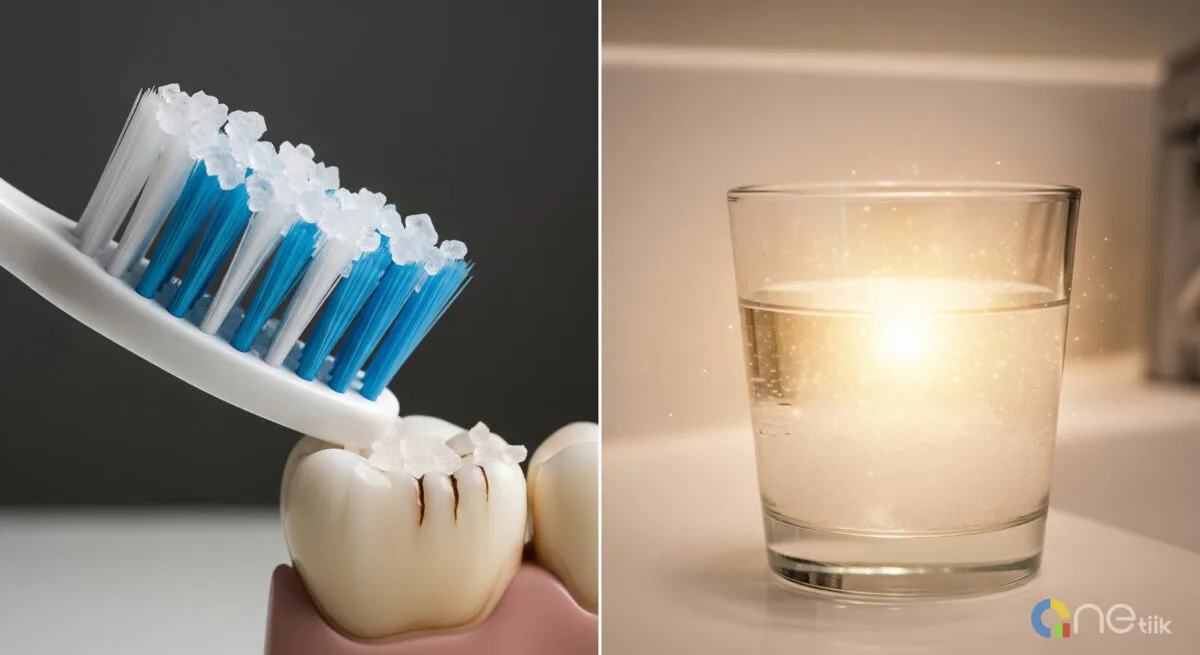
Many people wonder: Should I brush with raw salt or stick to rinsing?
Brushing with Salt
- Pros: Removes surface stains, kills germs, freshens breath.
- Cons: Over time, raw salt crystals can erode enamel and irritate gums.
Salt Water Rinse
- Pros: Gentle, safe for daily use, reduces swelling, heals minor wounds.
- Cons: Doesn’t whiten teeth as much as direct brushing.
👉 Verdict: Salt water rinses are safer and more effective long-term. Use direct brushing with salt sparingly, maybe once a week.
Side Effects of Using Salt on Teeth
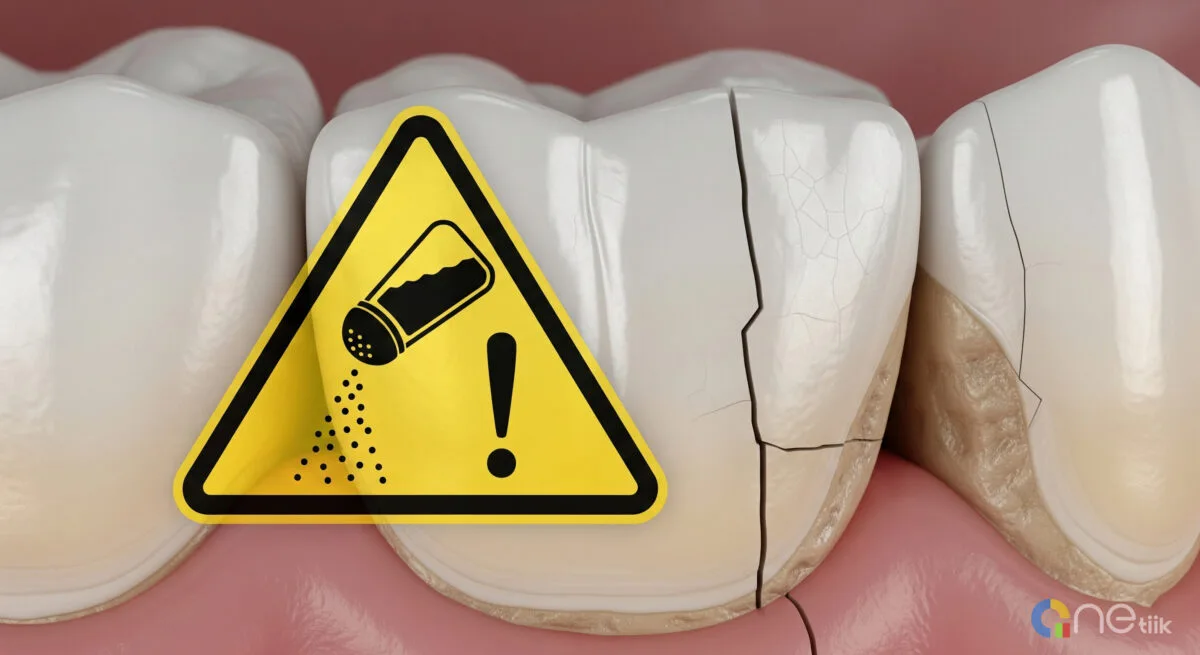
While salt offers many benefits, it comes with risks if misused:
- Enamel Erosion – Salt crystals are abrasive and can wear away the protective enamel.
- Gum Sensitivity – Overuse may irritate soft tissues.
- Dry Mouth – Excessive rinsing can reduce saliva flow.
- Limited Effectiveness – Salt helps, but cannot replace fluoride toothpaste or professional dental care.
Using salt as a home remedy is helpful, but only for mild issues. Severe pain or swelling could signal an infection. Learn more about the dangers in our article on Can You Die from a tooth infection
How to Use Salt Safely for Oral Care
1. Salt Water Rinse Recipe
- ½ teaspoon salt
- 1 cup warm water
- Stir until dissolved
- Rinse for 30 seconds, then spit out
2. Salt + Baking Soda Combo
Mixing salt with baking soda enhances whitening and cleaning power but limit use to once a week.
3. Salt & Mustard Oil (Ayurvedic Remedy)
In traditional Indian medicine, salt mixed with mustard oil is massaged onto the gums to strengthen them.
Salt in Traditional and Cultural Oral Care
- India & Ayurveda: Salt and oil pulling are age-old practices for oral detox.
- Ancient Egypt: Historical records show Egyptians used a mix of salt, mint, and herbs for teeth cleaning.
- China: Salt was used as a mouthwash and to treat gum infections.
- Europe (Medieval times): People brushed with salt and ashes before toothpaste existed.
Salt’s global use highlights its effectiveness and cultural importance.
Comparing Salt with Modern Dental Products
| Method | Effectiveness | Best Use | Risks |
|---|---|---|---|
| Salt Water Rinse | Good for healing, mild cleaning | Daily support | Minimal |
| Brushing with Salt | Strong stain removal | Rare use | Enamel erosion |
| Fluoride Toothpaste | Excellent cavity protection | Twice daily | None if used properly |
| Mouthwash | Strong antibacterial | Fresh breath | Some contain alcohol, may dry mouth |
👉 Salt should be seen as a supportive remedy, not a substitute for modern dental care.
Does Salt Whiten Teeth?
Yes, but only slightly. Salt can remove surface stains caused by tea, coffee, or smoking. However, it cannot change the natural shade of enamel. For true whitening, professional treatments or whitening toothpaste are more effective.
Why Dentists Recommend Salt Water Rinse After Procedures
After tooth extractions, root canals, or gum surgery, dentists recommend salt water rinses because they:
- Prevent infections
- Promote faster healing
- Reduce pain and swelling
- Keep wounds clean without harsh chemicals
Expert Opinions
Dentists worldwide agree that salt is useful, but they warn against overuse.
- Dr. Anjali Mehta, DDS: “Salt water rinses are excellent for recovery and inflammation, but brushing with salt every day can do more harm than good.”
- American Dental Association (ADA): Recommends salt rinses for wound healing but emphasizes fluoride toothpaste for cavity protection.
Common Myths About Salt and Teeth
- “Salt can replace toothpaste.”
❌ False. Salt lacks fluoride, which is essential for preventing cavities. - “Salt alone can cure gum disease.”
❌ False. It eases symptoms but cannot cure advanced gum infections. - “Daily brushing with salt makes teeth stronger.”
❌ False. Overuse may weaken enamel.
Quick Guide: Safe Usage
- ✅ Use salt water rinses 2–3 times per week (or daily when needed).
- ✅ Use fluoride toothpaste twice a day.
- ❌ Avoid brushing daily with raw salt.
- ✅ Visit the dentist every 6 months.
Final Answer: Does Salt Keep Dental Problems Away?
Yes, but with limits. Salt helps fight bacteria, soothes gums, and speeds healing—but it’s not a substitute for toothpaste or dental visits. Think of it as a supportive natural remedy for healthier teeth and gums.
👉 Want to maintain healthy teeth after treatment? Read our guide on Soft Foods to Eat After Tooth Extraction.
FAQs
Does salt whiten teeth?
Yes, mildly. It removes surface stains but cannot change the enamel color.
Is salt good for teeth daily?
Yes, as a rinse. Avoid brushing directly with salt every day.
Can salt water cure gum disease?
It helps reduce inflammation but cannot cure advanced stages.
How often should I rinse with salt water?
2–3 times a week, or after dental procedures.
What are the side effects of brushing teeth with salt?
Enamel erosion, gum irritation, and sensitivity.

